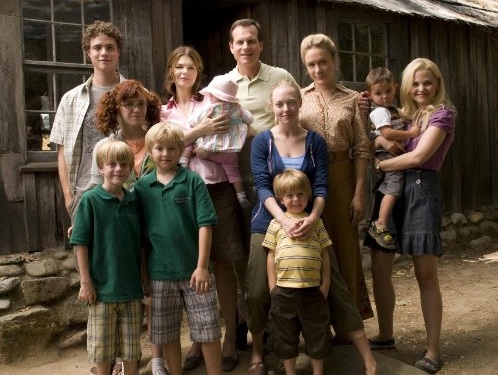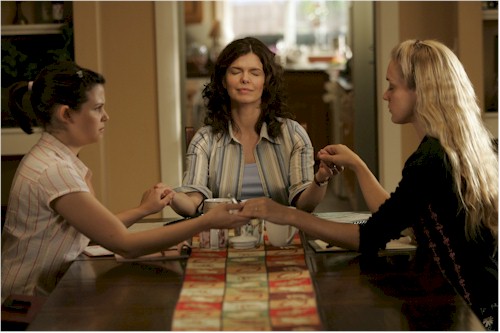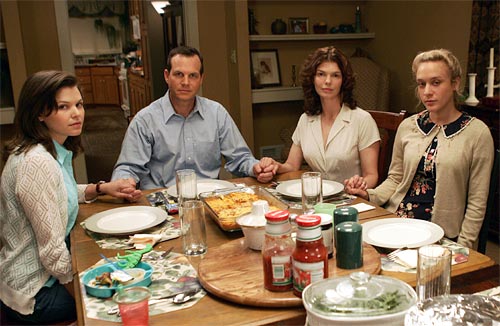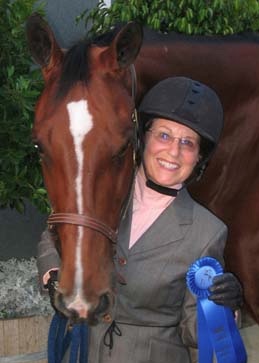When Big Love premiered on HBO three seasons ago, many critics found it hard to believe that a show about polygamy could avoid the sensationalism and prurience often associated with discussions of Mormon fundamentalism, but that’s what the creators promised.
Personally, I was intrigued to see how this life was represented, because it is about as different from mine as it could possibly be. I have been married twice but have lived alone for the last ten years, without a significant other. It’s actually hard to imagine sharing my home with other humans at this point, especially a husband and two "sister wives." Being an atheist and recovering Catholic, I was also interested in the depiction of people whose religious beliefs are so strong that they are willing to live a secret life as complete outsiders, in a society that vilifies them.
It became clear from the first episode that the creators had, as promised, come up with a credible window into the joys of family and communal living, as well as the tribulations involved in maintaining a secret lifestyle. Setting aside the moral, religious, and societal objections to polygamy, Big Love shows how these particular four people have made a family for themselves.

Husband Bill was raised in a fundamentalist sect that exemplifies every negative aspect of polygamy. Kicked off the sect compound at age 14 by the self-proclaimed “Prophet” (the father of wife #2, Nicki), Bill now thinks there is another way to live “the principle” of polygamy, which was enunciated in a revelation to Mormon founder Joseph Smith and practiced by all Mormons (at least until it became inconvenient when Utah wanted to be admitted to the United States).
Bill’s family lives in a tidy middle class suburb, not a rural compound. For the sake of the neighbors, they live in three adjacent houses, one for each wife and her children. From the street they look like any three houses, housing three unrelated families. But in the back, there are no fences and the three houses share an expansive back yard with a pool, barbeque, patios and play areas–exactly like the cohousing and yard-sharing arrangements promoted here at Shareable.net.

First wife Barb works outside the home, but the wives share all of the domestic chores. Each week they meet to assign chores and childcare duty, plan menus, and the like. The three wives even have a schedule for sharing Bill, who sleeps in a different house every night. (Although since Nicki is in the doghouse with Bill over her duplicitous efforts to remain loyal to both Bill and her father last season, wife #3 Margene has complained about having to “pick up the slack” for Nicki in that regard.)
I have been shocked by how many aspects of the life lived by the three wives appeal to me, which should tell us something about the shortcomings of our lives as twenty-first-century Americans.
While I would never be a religious fundamentalist of any stripe, I like the idea of sharing my daily chores and routines with my two best friends. There would always someone there to help out and I wouldn’t be lonely, as I sometimes am, but when there got to be too much togetherness, I could retreat to my own home, decorated just the way I like. There would even someone to take my husband off my hands when he became a pill, as husbands are wont to do. I could go to work with the comforting thought that everything at home was being taken care of. There would always be someone to share my feelings with, to console and be consoled by, and who understands the challenges I face.

The plot machinations are always interesting, of course, but I believe viewers like me keep coming back to see the show’s depiction of a supportive, loving family in which everything is shared among four people who love each other. They may be unconventional, but they demonstrate that family values are the same no matter how your life is organized. I don’t think I’m alone: Big Love speaks to a common American desire for more shareable lives, by presenting the fantasy of such a life.
Why don’t I live this way, or at least have some of these elements in my life now?
Good question. In my senior year in college I lived in a house with up to eight other people, and it was a lot of fun for the same reasons I find Big Love appealing. That’s even where I met my first husband.
But now it’s years later; I moved to my current city for a great job, and it is far from my family and old friends, so I see them very little. Life here revolves around kids, and I don’t have any. I don’t attend church or anything remotely like it. Everyone I know is married and they only socialize with other couples. For four of the years I’ve been here, I worked all day and went to school at night, doing homework on the weekends, and there was no time for anything else (and most of the other students were young enough to be my grown children). Long story short, I have no local support system, but it’s my fault. Of course, I’m not alone: this is the way many Americans live.
My New Year’s resolution is to do something about that; to get out more, get involved with something and bring more people into my life to share it. In that way, Big Love has been an inspiration.









